- Home
- Benzodiazepines, Addiction and Reovery
Benzodiazepine: Addiction Treatment
Useful Links
Benzodiazepine Addiction
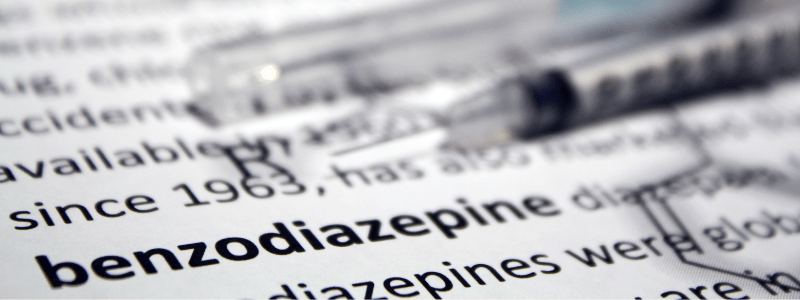
Benzodiazepine addiction is an extremely common form of substance abuse in today’s world largely due to availability, but coupled with their tranquil effects on the mind. They are however highly addictive and dangerous especially with long term use.
Benzodiazepine withdrawal symptoms can have life-threatening side effects if a detox is not carried out under medical supervision with the correct guidance and support. As such, many people struggling with benzo addiction lose hope of ever becoming benzodiazepine free, however there is hope, as we give you just that!
PCP is all too aware of the dangers these prescription drugs present, how common addiction to them is, and how they can seriously affect your quality of life.
If you or a loved one need help for a benzodiazepine addiction, we can help you to break free for good.
Benzodiazepines
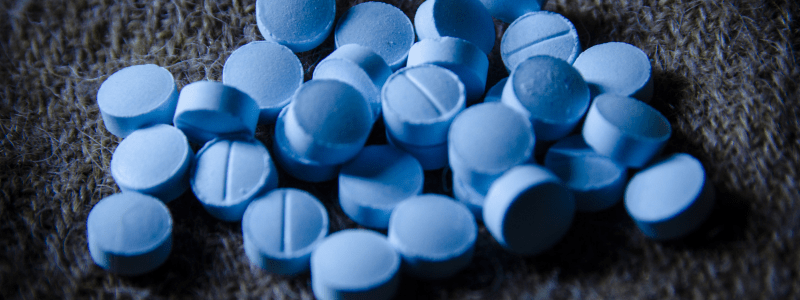
Benzodiazepines (or benzos) are a type of medically controlled Class C prescription drug that have a sedative and calming effect with sometimes devastating withdrawal symptoms, if attempted alone. Benzos are often prescribed for insomnia, detoxification from alcohol/drugs, anxiety, post-traumatic stress, seizures and muscle spasms (to name a few).
However, it is very easy to develop an addiction to these as the body quickly develops a tolerance to them. As such, they are only usually prescribed on a short-term basis and monitored very carefully. However, benzodiazepine addiction is something that can take hold of your life at a staggering speed.
This can lead to substance use disorder in which case being checked into a treatment facility will be worth serious consideration.
Types of Benzodiazepine
The most common types of benzodiazepine drugs are:
- Diazepam (Valium)
- Nitrazepam (Mogadon)
- Temazepam (Restoril)
- Lorazepam (Ativan)
- Librium (Chlordiazepoxide)
- Alazopram (Xanax)
- Flurazepam (Dalmane or Rohypnol)
Different types of benzodiazepines have different potencies, a different onset of effects, and duration of peak effects depending on the ailment they were prescribed to treat.
Common Street Names for Benzodiazepines
Some of the most common street names for benzodiazepines that you may recognise include:
- Benzos
- Blues
- Vallies
- Diazies
- Mothers little helper
- Moggies
- Jellies
- Roofies
- Temazies
- Downers.
Signs of Addiction to Benzodiazepine
If any of the following signs apply to you or a loved one, then treatment for benzodiazepine addiction is highly recommended:
- You want to take an increased dosage of the drug and / or more frequently to avoid withdrawal.
- You are unable to reduce the amount of benzodiazepine that you are taking.
- You have become mentally and / or physically unable to function without the drug in your system.
- You are continuing to take the drug even though you are already well aware of the physical and mental health problems that are associated with excessive drug use.
- You are becoming irritable and hostile towards others (particularly when pressed about your habit).
- Your judgement is being impaired.
- You are experiencing reduced inhibitions.
- You have been experiencing withdrawal symptoms such as higher sensitivity, anxiety, depression, tremors and disturbances to sleep – particularly when your drug dosage is intentionally or unintentionally reduced or stopped.
Those with a benzodiazepine addiction tend to detach themselves from life and distance themselves from responsibility, their relationships, and even their passions. When in the grips of such an addiction, the drug will become a necessity in order to function normally.
If this applies to you then it’s time to be honest with yourself and own this addiction. There is no shame in falling prey to such a devious and dangerous drug. Benzodiazepine addiction isn’t something to be ashamed of but it is irrefutably something that must be remedied.
Substance abuse of any kind is not sustainable but there are few quite as potentially devastating as benzodiazepine abuse. Read on to find out more about the effects of abuse and addiction to benzodiazepines and how benzodiazepine treatment can be of great benefit to your mental, physical, and spiritual well-being.
The First Step in Benzo Addiction Treatment
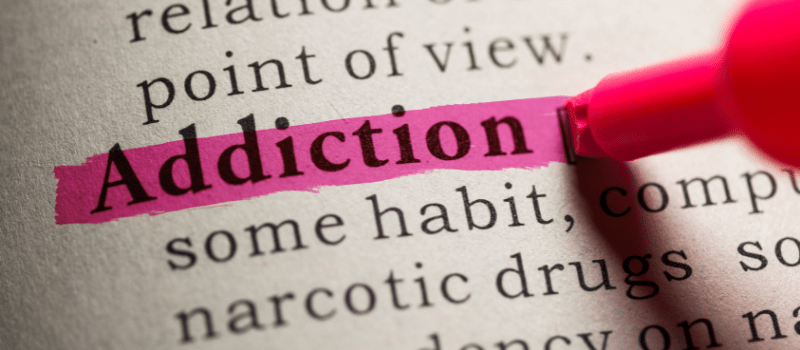
The first step to benzodiazepine addiction treatment is acceptance, and that is one of the most difficult things to do – coming to terms with the fact that your habit is out of hand.
This is no easy feat at all because benzodiazepine alters your brain. Its function is to increase the overall levels of gamma amino-butyric acid (GABA) in your brain which effectively works as a kind of natural tranquillizer subsequently calming down the nerve firings that are related to stress and the bodies’ reaction to stress.
In other words, benzodiazepine can make you feel good. But make no mistake, those positive feelings soon dissipate and are replaced with an almost constant feeling of anxiety, among other health problems. Your mental health will deteriorate as you will be forever in fear of your supply running out and that is a clear sign of dependency.
What once may have started as prescribed medicine for a previous ailment can easily turn into a drug addiction. At which point you may go through illicit methods of obtaining your benzo fix. This is when you start to make excuses as to why you ‘need’ benzodiazepine.
People who are addicted to benzos may start to invent reasons for needing to stay medicated such as, helping with your anxiety. When in actuality your anxiety is a symptom of your benzodiazepine addiction and the drug is no longer doing anything to help you.
If you suspect that you may be losing control of your benzodiazepine usage and believe that you may need to detox then read on. First, let’s look at some tell-tale signs that you may be suffering from benzodiazepine addiction.
The Effects of Abuse and Addiction to Benzodiazepines
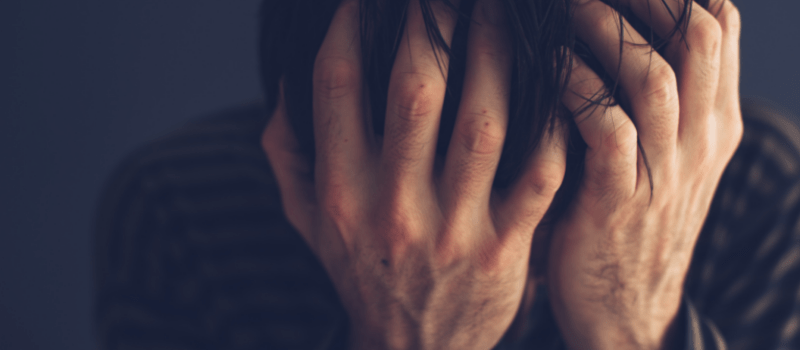
Once benzo addiction takes hold of you it can start to have a terrible negative affect on your life. Not only can it affect your relationships and professional life, but it also takes a toll on your mental and physical well-being as well. The effects of abuse and addiction to benzodiazepines include:
- Aggression
- Confusion
- Loss of appetite
- Violence
- Numbed emotions
- Euphoria
- Extreme drunkenness
- Anxiety and depression
- Suicidal thoughts
- Severe lethargy
- Demotivation
- Withdrawal symptoms
- Repressed breathing
- Coma and/or death from overdose (in extreme cases).
Addiction is a chronic relapsing brain disease that can lead to devastating consequences. In fact, benzo addiction often leads to death if left untreated. Rehab Today by (PCP) rehabs are experts in treating benzodiazepine abuse and addiction as well as other addictive prescription drugs.
Help and Treatment for Benzodiazepine Addiction
If you or a loved one have a problem with benzodiazepines and require help and treatment, please do not hesitate to contact us. We can facilitate same-day immediate admissions and can even arrange transportation if necessary.
We offer affordable and effective benzodiazepine treatment options of the highest specification. We understand that no two cases are the same and just how difficult it is to break the cycle. This is why we will do everything that we can do to help you overcome this terrible addiction and aid you in taking back control of your life once and for all. Read on to find out more about benzodiazepine treatment.
Benzodiazepine Rehab
The Perry Clayman Project (PCP) offer bespoke detox and rehab, for those with any kind of problem relating to benzodiazepines. Our benzodiazepine rehab programmes are tailored to your individual physical, psychological, social and spiritual treatment needs. We treat the whole person and not just one singular aspect.
We have the medical expertise, addiction professionals, and evidence-based addiction treatments, to ensure that you receive the very best and affordable addiction treatment available, including essential relapse prevention, and various other recovery techniques such as group therapy.
Benzodiazepine Addiction Treatment
Substance use disorder is not uncommon, particularly among those who have developed an addiction for benzodiazepines.
Now is not the time to punish yourself for being in the situation that you are in. Self-loathing is a waste of resources and you are going to need all of the strength that you can muster to stop taking the drug and successfully completing benzo rehab treatment.
If you are ready to rid yourself of this terrible affliction and take your life back, then our rehab clinics are here to help you with your Benzo Addiction.
Addiction treatment involves professional therapy from medical experts and counselling for both the physical and mental health effects of long-term substance abuse. There are a number of different therapeutic approaches and we understand that there is no single treatment.
program that works for everyone. This is why we tailor all of our programmes and they are prescribed to treat the individual.
Addiction treatment and rehabilitation is broken down into three key parts:
- Detox and medical stabilization: Clearing the drug from your system and dealing with the withdrawal symptoms.
- Substance abuse rehabilitation: Identifying and addressing the underlying issues that may have led to your benzodiazepine addiction in the first place – including cognitive behavioural therapy.
- Aftercare and relapse prevention: Providing you with aftercare even after you have left our treatment facility. We understand that getting over substance use and making a full recovery is an on-going process and we will always be around to support you when you need someone to talk to.
It is important to note that detox alone is seldom a sufficient intervention, if you wish to achieve a lasting recovery from benzodiazepine addiction. In fact, detoxification is merely the first step in the treatment and recovery process.
Understandably, at the start of the therapy, each individual will have different treatment requirements and varying degrees of risk for experiencing complicated and severe withdrawal symptoms. This is why we provide a variety of detox environments in order to accommodate these individual circumstances, such as residential and inpatient programs at a treatment facility, and outpatient programs.
Upon successful completion of your detoxification from the drug, we encourage you to continue speaking with medical experts and addiction therapists in order to take part in a variety of therapeutic approaches, from group therapy, one on one sessions, and so on.
The most common and recommended treatment for those recovering from benzodiazepine addiction is CBT (cognitive behavioural therapy). This focuses on identifying all of the negative thought patterns and triggers associated with your drug abuse and working through them.
Once you have a deeper understanding of the why, staying true to the course and refraining from relapsing in the future will be much more realistic.
Finally, as you reach the last stages of your rehabilitation and the drug is out of your system, planning for your aftercare can begin.
As an inpatient, once you are discharged from our facility and free to return home, we will continue to offer aftercare and support and encourage you to take advantage of this. Having a strong aftercare plan in place will strengthen your relapse prevention and bolster your overall chance at a successful recovery, and long-term abstinence.
Rest assured there are few rehabilitation organisations better positioned to help you get your life back than the team at PCP, as many of our expert staff have been through addiction recovery themselves. We know what you are going through and we want to do everything in our power to put you back in the driver’s seat.
Benzodiazepine FAQ’s
How Addictive are Benzodiazepines?
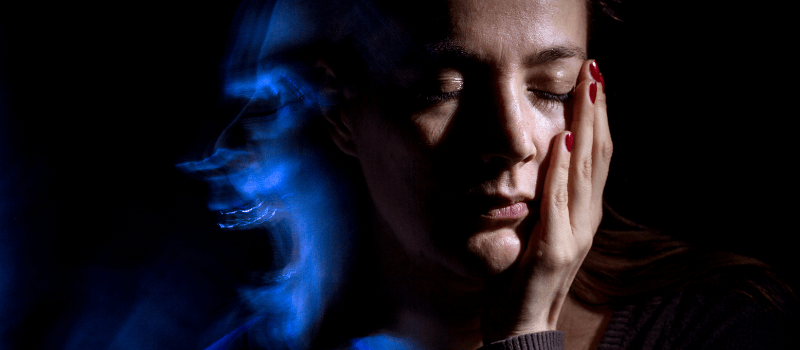
Make no mistake, benzodiazepines are extremely addictive, and can cause tolerance and dependence issues after only 10 to 14 days of daily use. Once the claws are in it’s an extremely difficult addiction to kick.
Once you are tolerant to a certain dosage of benzodiazepines, you will no longer gain any of the desired benefits. This is when you will likely up your dosage and start taking more in order to ‘chase the high’.
If you are prescribed for longer than 10 days to help treat an illness then it is likely that your doctor will gradually wean you off the drugs so that you do not suffer withdrawal effects.
Higher doses of benzodiazepine dependence, where the dosage has been increased significantly over time, require much more careful medical management and a longer detoxification period. If you have been suffering from benzodiazepine addiction for a while, then drug rehab is highly recommended.
Clinically, the safest way to detox from benzodiazepines is to be admitted to a detox facility for a professional medical detox. Inpatient treatment will be required from a certified treatment provider and monitored by medical professionals so as to manage the drug withdrawal symptoms safely and appropriately.
What is Considered to be Long Term Use of Benzodiazepine?
If you have been taking benzos for longer than 2 to 4 weeks then that is considered long term usage. If you have been taking benzodiazepine for a significant amount longer, for example, six months, then you are putting yourself at tremendous risk and almost certainly need to consider rehabilitation treatment.
If someone has been taking higher dosages this drug in order to achieve the same initial response received from initial consumption, their tolerance will be higher and their detox needs will be significantly longer and need to be more carefully monitored.
How Does Addiction to Benzodiazepines Occur?
What are the most common causes of benzodiazepine addiction? Addition to benzodiazepine usually occurs via one of the following three:
- You become addicted through a legitimate prescription, but you continue to purchase additionally online, from street dealers, or gain additional prescriptions from different doctors.
- You purchase them illicitly, have no medical need for them whatsoever but enjoy the effect that they produce.
- You have another addiction, perhaps to alcohol or another drug and you regularly take them in order to increase the effects of the other drugs or to help facilitate a come down from them.
What Is Benzodiazepine Dependence, Abuse and Addiction?

Benzodiazepine Dependence
Benzodiazepine dependence occurs from excessive use of the drug. Dependence can manifest from a genuine prolonged prescription (one that has been prescribed for longer than 10 to 14 days). Dependence can also develop through regular abuse thereof.
Benzodiazepine Abuse
Benzodiazepine abuse is when you are taking benzodiazepines that do not belong to you, taking them in addition to a different prescription, purchasing them illegally, crushing and snorting or diluting and injecting them, and/or combining them with alcohol or other drugs for increased side-effects and highs.
Benzodiazepine Addiction
Benzodiazepine addiction is something that invariably happen through regular abuse. Through repeated exposure it can cause substantial changes to the brain’s neural pathways. These negative changes can drive you to extreme measures in order to get your hands on benzodiazepines and use them, usually to excess.
If you are addicted, you will usually not be able to reduce the amount that you take by yourself. The changes to your brain hard-wire you to seek and take benzodiazepines, regardless of the risks to yourself or to others.
If you have noticed a distinct lack of control around your drug-taking and regularly suffer negative consequences as a result, then it’s time for you to seek out benzo addiction treatment.
Whats the Benzodiazepine Mortality Rate?
England and Wales have tragically seen a steady increase in benzodiazepine mortality rates over recent years. In 2016 there were 406 deaths recorded attributed to benzodiazepine misuse. This is the highest death toll since records first began and those numbers seem to be on the rise.
What Are the Dangers of Benzodiazepines?
When used for medicinal purposes (which is the only time that they should be used), benzodiazepines have a limited but effective therapeutic effect. The danger of taking benzo arises when an individual has been prescribed them on a long-term repeat prescription, or when they are obtained illegally – this can lead to physical dependence, abuse and, addiction development.
Benzodiazepines are incredibly dangerous – particularly when going through withdrawal. Not only do they have a terrible impact on your mental health, but on your body as well.
What are the Benzodiazepine Withdrawal Symptoms?
Benzodiazepine withdrawal is, without a doubt, one of the most brutal, difficult, and dangerous withdrawals out of all the prescribed and illegal substances available. In fact, to give you an idea of just how dangerous they are, many people claim that their withdrawal from benzodiazepine addiction was even harder than their withdrawal from heroin.
Please note that stopping too quickly or abruptly can result in serious life-threatening benzodiazepine withdrawal symptoms:
- Seizures
- Malnutrition
- Psychosis
- Hallucinations
- Schizophrenia
- Severe anxiety and panic attacks
- Suicide attempts
- Mania
- Coma
All of these withdrawal symptoms require urgent medical attention as can result in death if not promptly treated. This is why if you are ready to kick the addiction then you should seek out professional benzodiazepine addiction treatment from a certified rehabilitation clinic.
How Long Does Benzodiazepine Withdrawal Last?
How long a benzodiazepine withdrawal lasts depends on a number of different factors:
- The daily dosage you are physically dependent on at present
- How long you have been taking benzodiazepines for
- Any other addictions present (e.g., alcohol or drug abuse)
- Your current physical and mental health condition
Benzodiazepines are not quick to detoxify from your system. In fact, most take weeks, and higher doses may even take months to completely clear from your system which can make withdrawal feel like it will never end.
PAWS (Post-Acute Withdrawal Symptoms) can also happen for up to a year and beyond after stopping taking them. Although this is much rarer, it can happen with those that have been taking larger doses for an extended period of time.
Whats the Best Way to Detox from Benzodiazepine?
The safest way for you to detox from benzodiazepines is to be admitted to a reputable and regulated detox facility. Our rehabs centres offer full medical detox for those who are dependent and addicted to benzodiazepines. We have four established, CQC registered treatment centres across the UK, including London.
We take benzodiazepine detox very seriously and understand the implications that can arise if an individual is detoxed too quickly. As such, we will ensure that you are safe and comfortable throughout your detox, by using a prescribed medical detox treatment and around the clock monitoring from our team of certified medical professionals.
We understand how daunting it can be when exploring your treatment options. Long term and excessive use of benzodiazepines can lead to one of the most difficult withdrawal processes. Take comfort in the knowledge that once you have committed to stop taking the drug, you will have the highest level of care with our effective and safe rehabilitation and detoxification centres.
As you begin the detox process from benzos, it is highly likely that the symptoms of any previous mental health conditions will return. This may include panic attacks, hallucinations, and the physical discomfort that accompany withdrawal syndrome. Do not let this put you off. It is a typical part of the process and something that our medical experts will guide you through with the utmost care and consideration.
This is why it is crucial for you to complete your detox in a safe and professional treatment environment.
Depending on your situation we may recommend a slow taper as the best method of beating your benzodiazepine addiction. This means that you will need to take increasingly smaller doses over several weeks or months before you stop entirely.
This approach is often best, as stopping completely when your body is used to consuming high dosages is dangerous. We will work closely with you to determine the best possible tapering schedule depending on the type of benzodiazepine that you’ve been taking, how much, and for how long.
Again, we cannot stress the importance of having medical supervision and care throughout this process.
If you are also addicted to another substance such as alcohol or opioids in addition then our rehab specialists will provide medical support for your detox from these other substances whilst tapering you off the benzos. As an example, this could mean taking methadone to treat your opioid addiction.
What are Co-Occurring Disorders?
It is important to note that your addiction to benzo’s might be a symptom of co-occurring disorders. This refers to those having a co-existing mental illness on top of a substance use disorder. This can also relate to those who suffer from other combinations of disorders as well.
When both a substance use disorder and a mental health issue co-occur, they can have seriously negative impacts on your life – varying in severity from case to case.
If you are struggling with underlying mental health problems and substance abuse then you must seek the proper medical and psychological support when exploring your addiction treatment options, in order to safely and successfully wean you off of without unnecessary risk or complication.
What if A Loved One is Addicted to Benzodiazepine but They Refuse to Listen?
Drug abuse can lead to a number of disorientating symptoms in the user including difficulty concentrating, memory problems, and dizziness to name a few. This is why it is also best to approach a person who is abusing benzo when they are sober and lucid.
Remember that you must approach them with an open heart and mind and an understanding that they are suffering from a disease, not a failure of willpower.
When you find the ideal moment to talk to your loved one, you must do so with a compassionate mindset. They will be much more willing to open up to you about their addiction if you approach them one-on-one. Doing so in a group intervention can be intimidating and often lead to aggressive behaviour.
Tell them from a place of love that you are concerned about their benzodiazepine use and that you want to help them.
Remember that you mustn’t blame them, but the substance instead.
Try to make them aware of just how dangerous the drug is and what the long-term effects are. At this point you can ask them if they want and are willing to accept help.
Be prepared for negative emotions, including anger and denial. As frustrating and unpleasant as it might be you must remain calm, alleviate their hostility, help them to see through their denial and accept the fact that they are suffering from substance abuse.
Avoid yelling and remember that you cannot force anyone to accept that they need help. They need constant steady support and understanding, and for you to wait for them to be ready for taking the first step toward sobriety and seeking treatment rehab.
We Can Help You Broach the Subject of Benzodiazepine Addiction Treatment?
Please do not hesitate to call us for advice if you need help in preparing for this very important conversation. We can help you better understand what those suffering with excessive benzodiazepine use will be going through and how best to approach them.
In addition to that, a therapist can arm you with effective coping strategies to deal with the stress that comes with a loved one suffering from addiction – as it’s not just their mental health that will be suffering as a result, but yours as well.
One of our professional psychology experts can share what kind of language you will find most effective in order to get your loved one into one of our certified drug rehab centres and ready to receive medical advice and inpatient treatment.
A good tip is to communicate the fact that you are open to support their efforts to rid themselves of the addiction and that you will do whatever it takes.
Remember to not only tell them how you feel about their substance abuse, but also listen to what they have to say. What are they feeling? Why do they use it as much as they do? And what do they need from you to help them maintain abstinence from the drug (though attempting to go ‘cold turkey’ from benzodiazepine addiction absent the proper medical care is NOT recommended).
If they do not take your outreach well, and continue using benzodiazepines whilst blindly refusing professional benzodiazepine addiction treatment then don’t lost heart. You can try and reach out to them again at a later date.
Just remember that you must take care of yourself while you wait. The first step is broaching the subject and it rarely works on a first attempt. Stay the course and try to be as patient and understanding as possible – no matter how impossible it may seem.
Call us today for a free assessment of your treatment needs.
